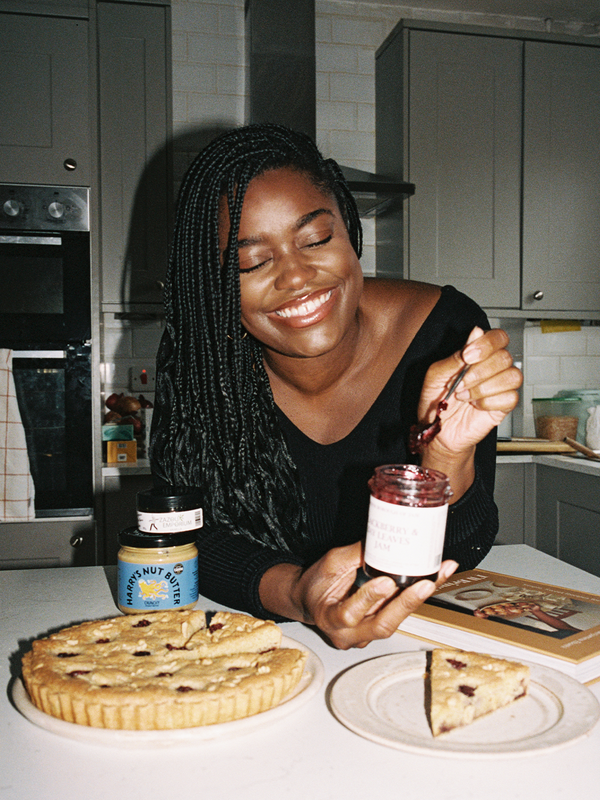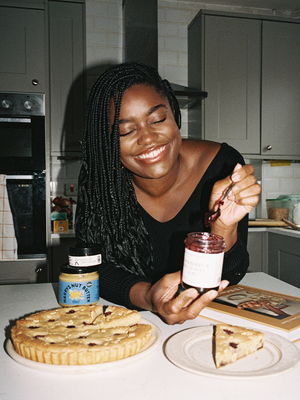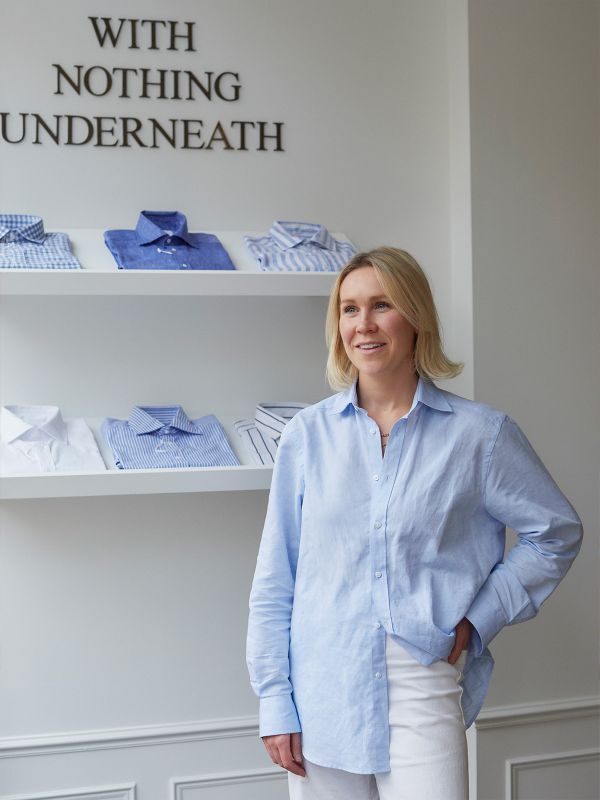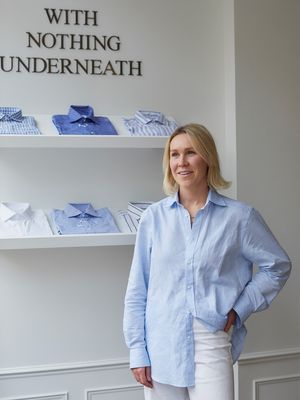
Small Sustainability Swaps
Tupperware Is Your New Best Friend
In an aim to reduce your plastic consumption, Tupperware is going to become an extension of you – a third arm, if you will. Beyond putting your lunches in them every day, they’re a great way to swap out the plastic containers that are considered more ‘single use’. Take them to your butchers, your greengrocers, to the health food shop (they’re great for storing dried apricots!) and even, if you’re willing to get a bit cheeky, your local takeaway – simply ask if they’d mind slipping your chow mein into your containers rather than theirs. It was also announced this week that M&S will be offering discounts to customers who bring their own containers to the in-store fresh food-to-go Market Place counters, so not only are you doing right by the planet, you’re also saving money. It’s a no-brainer.
Make The Most Of Your BBQ
Particularly in the summer, there’s nothing better than having a BBQ on a warm day. But we must admit, we’re partial to a winter barbie too – have you ever had flame-roasted salmon on a cold night? It’s the best. Either way, whether you’re a summer or winter barbecue-er, lighting up those coals will help you save on energy, says Matt Clemow, CEO of Igloo Energy: “By taking steps such as keeping the hood down, cooking meat for no longer than needed and using leftover heat to cook food for the next day, barbequing can be a brilliant opportunity to save energy. It’s also a great way to entertain the kids as they’ll love the novelty of cooking outdoors and can get involved with preparing the meals.”
Ditch The Tumble Dryer
When it’s warm outside, don’t waste energy by sticking your wet washing in the tumble dryer – hang it out to dry. “Tumble dryers use 2,000W-3,000W per hour so each kilowatt will cost you roughly 14.37p[ on top of your annual standing charge, which will quickly add up,” says Matt. “If your only option is the tumble dryer you can save energy by drying a full load, making sure you remove any excess water and untangling your laundry.”
Eliminate The ‘Standby’ Option
We are all aware that standby isn’t great for the environment, but it’s also not the best for our wallets either – each year, UK households waste £227 million from appliances left on standby. So instead of switching things off with the remote, just turn them off at the wall. “An old TV can use as much as 106kWh a year (and will add £15 to your bill),” say the plant-based experts allplants. “If you’re also leaving your multi-room speakers and your router and your Sky box on standby, then it quickly adds up — both in terms of your bill and the impact on the environment.” New legislation means newer appliances use a lot less electricity when left on standby, but as allplants say, it’s easy to rectify regardless of whether your electrical goods are new or old: “Build turning appliances off at the wall into your evening routine — or, even better, do it as you finish using them — it takes seconds and can make tangible improvements to your carbon footprint.”
Turn Your Thermostat Down By One Degree
When the cold nights draw in, remember that turning down your thermostat by just one degree could save you around £80 a year in bills, according to allplants. “In terms of energy — and therefore your carbon footprint — turning your thermostat down by two degrees from 20°C to 18°C will save 33 TWh,” they explain. “Regulating your heating with a timer is another great tip; that way you can make sure you’re warm when you need to be but don’t waste energy heating an empty house.”
Think Differently About Your Period
Admittedly this tip isn’t going to be for everyone, but if you’re willing to commit to a sustainable lifestyle, then the materials you use whilst on your period might play a big part. A single sanitary pad can take around 500 years to fully break down, and these along with tampons, panty liners and all their packaging contribute to around 200,000 tonnes of waste per year. Therefore, swapping tampons and sanitary pads for moon cups or period-proof underwear could have a hugely positive impact on the environment – and there’s plenty of underwear brands out there that are currently offering underwear made for periods. Thinx, Flux and Modibodi all create pants designed to be worn without a pad or tampon, and can usually hold up to two tampons worth of liquid.
Switch To Solids
Banishing plastic from your bathroom is no easy feat, and this is supposed to be easy swaps, so why not just try one thing at a time. Instead of buying body wash in a plastic bottle, try buying a solid body wash – Lush do some great ones. The same applies for shampoo and conditioner; these days you can buy them in their solid from the likes of The Natural Soap Company, Primal Suds, Lush, and if you’re really splashing out, even Christophe Robin do a fabulous multi-tasking bar.
Get Some Reusable Cutlery
No one can resist the lure of a good Pret salad, a Starbucks granola pot, or an Itsu soup. But it is becoming easier to resist the lure of the single-use plastic they offer – now, there’s plenty of great reusable bamboo cutlery. This set costs just £7.99 and has a knife, fork, spoon, chopsticks, straw, and most importantly, straw cleaner.
Change Your Toilet Paper
A lot of loo roll comes wrapped in plastic, but there are some good brands that only wrap theirs in paper. Who Gives A Crap offer bamboo, recycled and forest-friendly tissue paper. And the best bit? The company donates 50% of their profits to help improve sanitation and build toilets in the developing world.
Get Rid Of Cling Film
Cling film isn’t renewable, so it’s time to get rid of it once and for all. Instead, use beeswax paper. All you need to do is warm the paper with your hands and stick over the top of bowls, or wrap up your sandwiches, and once it cools, the paper will create a seal. And to wash, just wipe with cool water and gentle soap and then reuse. This may sound fiddly but it’s actually pretty easy to use.
Try Plastic-Free Gum
Did you know almost all chewing gum is made of plastic? So not only is it bad when you swallow it, but when you spit it out it’s also not biodegradable, meaning that stuff is sticking around for a while. According to WWF, Britons are the second biggest consumers of gum in the world, chewing an estimated 130 sticks per person each year. Plastic-free gums are available, however, such as Glee, or Chewsy.
Invest In A Good Razor
Instead of buying disposable razors, treat yourself to a good quality one, with a sturdy, high-grade handle (preferably plastic-free), and just change the blades when you need to. Disposable razors aren’t usually recyclable, so it’s best to invest in one that’s going to last.
Buy A Natural Exfoliator
By now we’re all aware that microbeads are the devil, ruining our seas and killing our marine life. But what can we use instead to combat dry skin? Try swapping your current exfoliant for a loofah, a scrubber made from a tropical fruit from the cucumber family.
DISCLAIMER: We endeavour to always credit the correct original source of every image we use. If you think a credit may be incorrect, please contact us at info@sheerluxe.com.







